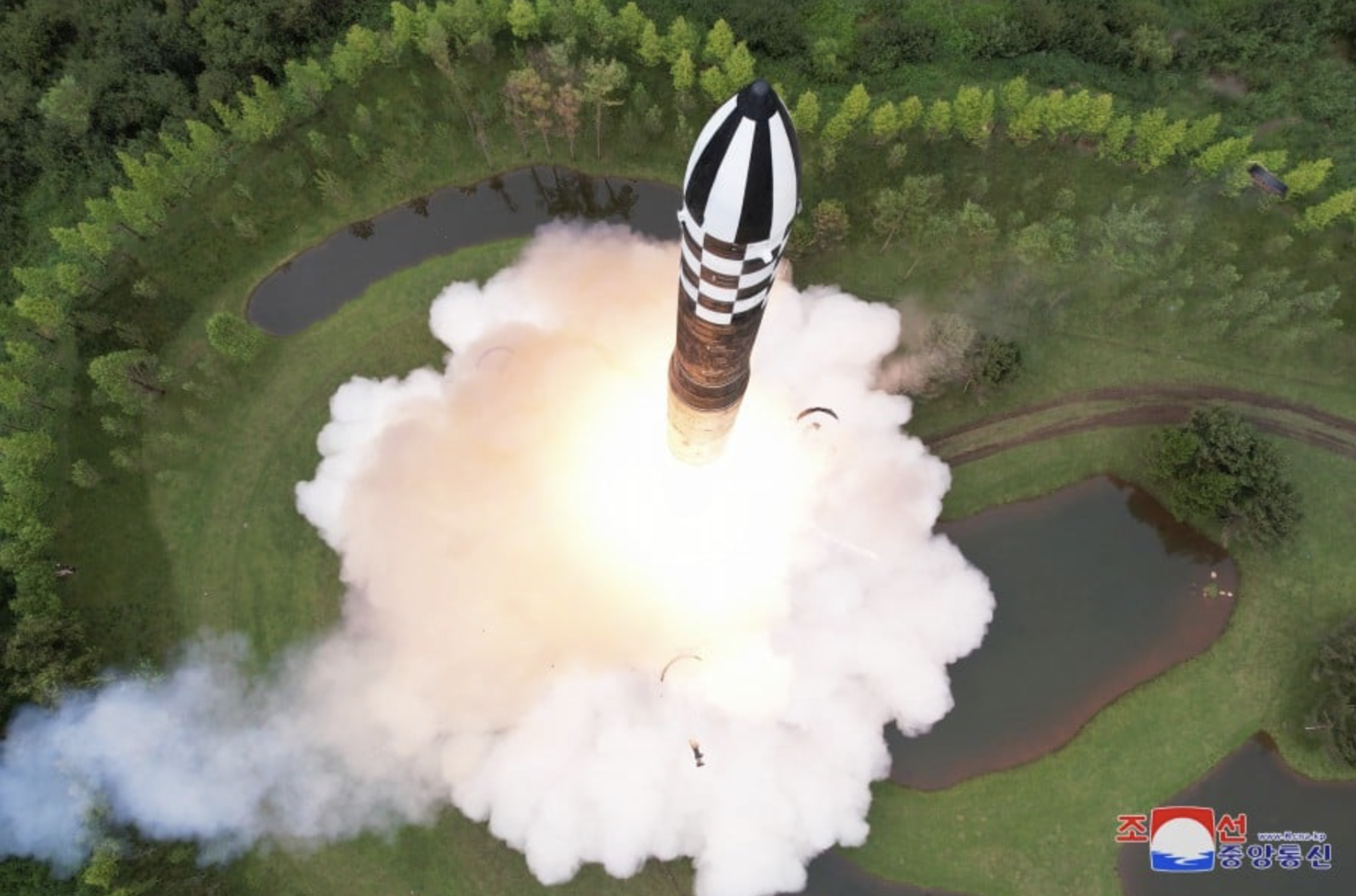
The United States and allies must be prepared for a two-front war in Northeast Asia and nuclear attacks in the next decade, a new report from the Atlantic Council warns.
“The risk of simultaneous conflict [with China and North Korea] are very high,” Markus Garlauskas, the author, said in a pre-recorded video.
“The consequences [of such a two-front war] are tremendous” if it escalates to a nuclear attack.
He wrote in the report, “The near-immediate strategic and operational effects of even the smallest limited nuclear attack—including disrupting military operations, inflaming public opinion, and sharply increasing escalatory risks—would almost certainly far exceed its direct physical and tactical effects. Over the longer term, such a clear violation of the ‘nuclear taboo’ and failure of nuclear deterrence would also mean that the consequences of a limited nuclear attack in East Asia could ripple globally and be felt for generations.”
For that two-front war to happen doesn’t require coordination between Beijing and Pyongyang if tensions over Taiwan escalate or North Korea launches an attack on Seoul, he said. The report emphasizes, “U.S. and allied capabilities, command-and-control arrangements, and posture (including forces, bases, and agreements with allies) are unsuited to prevent simultaneous conflict with the PRC and North Korea and/or a limited nuclear attack or provide robust military response options if they occur.”
Washington and allies, like Japan and South Korea, “need to deter and potentially defeat a second adversary when you’re in conflict with the first,” he said.
The report recommends the United States increase its military presence in Japan and Korea and interactions with Taiwan as a first step to meet the changed circumstances of having to engage in two conflicts at once in Northeast Asia. The reasoning is: “to help ensure that key US allies and partners are intellectually and operationally better prepared for a conflict with the PRC and/or North Korea that involves a limited nuclear attack by either or both.”
In addition, a more visible presence of naval and military aviation support from other allies like the United Kingdom, Canada and Australia would also “reinforce international commitment and contributions to deterrence.”

In 2022, North Korea announced its development of tactical nuclear weapons to defend the regime from threats to its continued existence. The report also cited China’s rapid military expansion that would allow it to better engage in a two-front regional war.
This newly-defined assessment should cause re-thinking that aggressive acts in one region will likely have effects on another. For example, on the peninsula, “The United States and South Korea should shift their focus to a broader priority of protecting South Korea from aggression—encompassing deterrence of PRC aggression in addition to North Korean aggression,” the report noted.
Although there are a number of ways that a conflict could escalate into a two-front, nuclear war in the next decade, the report stated, “(d)eep distrust currently exists between the PRC and North Korea, and we found that neither is likely to feel compelled by any obligation to fight alongside the other—but this would not prevent the emergence of simultaneous conflicts with both.”





